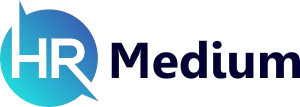A Human Resource Management System can be the driver of efficiency for a firm by streamlining HR processes and boosting employee satisfaction. So, many firms eye the benefits of implementing one but often overlook the obstacles they might face.
These are all avoidable mistakes. What can a firm do to ensure their goal of achieving organizational efficiency through HRMS is not restricted?
Also Read: Customized HRMS Vs. Out-of-the-Box System: Best Fit for Your Firm
Explore some common roadblocks of HRMS implementation and how to avoid them.
HR tasks are often filled with repetitive work that take up valuable company time. An HRMS can help manage those tasks while better engaging employees.
Lack of or an Inadequate Requirement Analysis
Perhaps one of the most common mistakes is the failure to conduct a thorough analysis of the firm’s needs before choosing an HRMS.
Without a proper understanding of the requirements, such as for payroll, for recruitment, or for performance tracking, firms risk investing in a system that might not meet their expectations.
Conduct a detailed assessment of what is required by involving all key personnel to ensure the selection of the right solution.
Selecting the Wrong Vendor
Choosing a vendor based solely on their brand reputation or their pricing model can backfire. It is necessary to evaluate all potential vendors for their ability to provide ongoing support, customization, and training.
Search for vendors that have a proven track record in the same industry. Additionally, request for demos and maybe some references from real clients before committing to them.
Underestimating Data Migration Obstacles
Data migration is a critical part of going from a paper-based HR work process to an HRMS. Many underestimate the challenges it brings, such as duration, complexity, and importance.
Inadequate or poor-quality data can create inaccuracies that limit the effectiveness of the HRMS. It is important to clean, validate, and standardize data before conducting the migration.
Thorough planning is key with sufficient data backups. Check the compatibility of the old and new systems to highlight any issues before encountering them.
Lack of Training Necessary Stakeholders
Even the “best” HRMS on the market can deliver poor results if the end users are not properly trained. Many firms overlook the importance of training programs catering to different user groups.
Along with this, a resistance to technological change is always anticipated. But tackling both issues requires smart communication by the leader. Communicate the benefits of the system and how it helps the employees and the firm.

